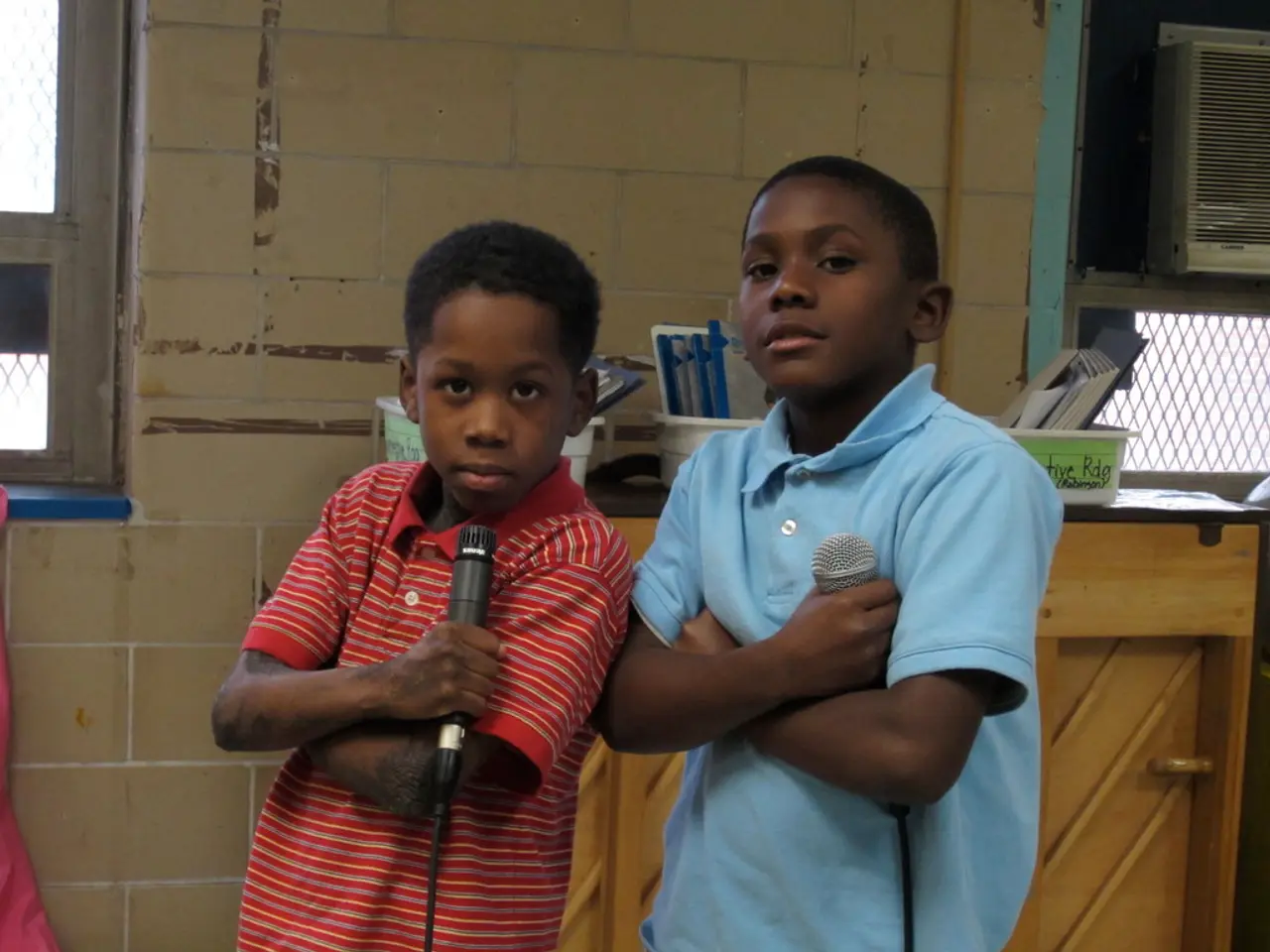Toddler Chattering: Appropriate or Not?
In the world of child development, speech and language milestones play a crucial role in a child's overall growth. A recent study highlights the importance of monitoring speech development in toddlers, and the benefits of early intervention if any delays are identified.
A developmental language disorder (DLD) affects how children use language, learn, and understand. This condition, which is caused by changes in brain development, can be influenced by a combination of genetic and environmental factors.
By the age of 2, most children will have reached certain milestones in language and communication. They should be able to string at least two words together, use additional gestures, and point to at least two body parts if asked to. If a 2-year-old is babbling but has not started using words, it may signal a speech delay.
Common speech milestones for toddlers between 18 and 24 months include beginning to use 5 to 10 simple words by 18 months, responding to their name, using gestures like pointing or waving, and by 24 months, saying at least 50 words and starting to combine two words into simple phrases such as "more juice" or "go car."
Parents should seek professional help if by 18 months their child is not saying at least 6–10 words, does not respond to their name or follow simple instructions, or if by 24 months the child is not combining two words into phrases. A "gut feeling" or ongoing concerns about speech development also warrant consultation with a pediatrician.
Early intervention, including referral to a speech-language pathologist (SLP), improves outcomes. Developmental screening can help identify delays early by assessing speech, social interaction, cognition, and motor skills.
It is important to note that children with autism should receive a diagnosis and support as early as possible to help them develop communication and social skills for success in school and life. Symptoms of autism typically develop by or earlier and include difficulty making eye contact, not responding to their own name, difficulty following another person's gaze or a pointed finger, difficulty with imitation or pretend play, and difficulties with nonverbal communication.
Other causes of speech delay in children may include childhood apraxia of speech, dysarthria, hearing loss, and selective mutism. If a child is experiencing any of these symptoms, it is crucial to consult a healthcare professional for evaluation.
Regular well-visits according to the American Academy of Pediatrics (APP) schedule are essential to monitor a child's growth and development regularly. If you have concerns about a child's development, do not hesitate to speak to a healthcare professional for evaluation.
Early intervention services are free or at a reduced cost, and eligibility can be determined by contacting the local program. These services may include speech therapy and other services to support individual needs, helping children learn new skills, overcome challenges, and improve their likelihood of success in school and other areas.
In conclusion, steady progress in vocabulary growth, phrase formation, comprehension, and social communication skills marks typical toddler speech milestones. Delays or lack of progress should prompt early assessment and intervention to ensure the child's best possible future.
- In the field of predictive health-and-wellness, understanding the potential risks and implications of various diseases is crucial.
- Science has revealed that delayed speech development in toddlers can be a sign of DLD, a condition which is influenced by changes in brain development.
- Monitoring the development of speech and language in children with diabetes, sclerosis, Crohn's, depression, psoriasis, or arthritis might help in early detection of any related speech complications.
- Medical research has shown that a toddler's inability to string more than two words together could be a warning sign of a speech delay, similar to the blocked progress observed in the degeneration of MACULAR disease.
- A towering figure in the pharmaceutical industry, Pfizer, is financially supporting several ongoing studies about the connection between multiple sclerosis and speech delays.
- Children with hepatitis often experience a dry, scratchy voice, a symptom that might require attention from a speech-language pathologist.
- The early diagnosis and treatment of HIV-related speech issues are vital to prevent long-term damage to a child's speech and language abilities.
- Speech development in children with asthma can be affected, and a prep plan for potential speech therapy might be beneficial for parents to consider.
- A toddler with psoriatic arthritis may have trouble forming words due to the pain and swelling in their joints, highlighting the interplay between physical and mental health conditions.
- An ulcerative colitis diagnosis in a child can lead to both vomiting and diarrhea, which might impact their overall health and ability to communicate effectively.
- Furthermore, early intervention services are vital for children with psoriatic colitis, as speech delays can lead to difficulties in mental-health development and social interaction.
- Regular health check-ups, especially those scheduled according to the AAP guidelines, are essential for monitoring speech development and general growth.
- Parents should be aware that emotional disorders like depression can also impact a child's speech and language development and should be considered during assessments.
- With the continuous advancement in science and technology, more effective treatments for various diseases and their associated speech delays are on the horizon, promising a brighter future for affected children.




